Internship in Jahaly / The Gambia
Are you interested in an internship in Jahaly Health Centre or Kindergarten – or are you looking for a place for a voluntary social year (German FSJ)?
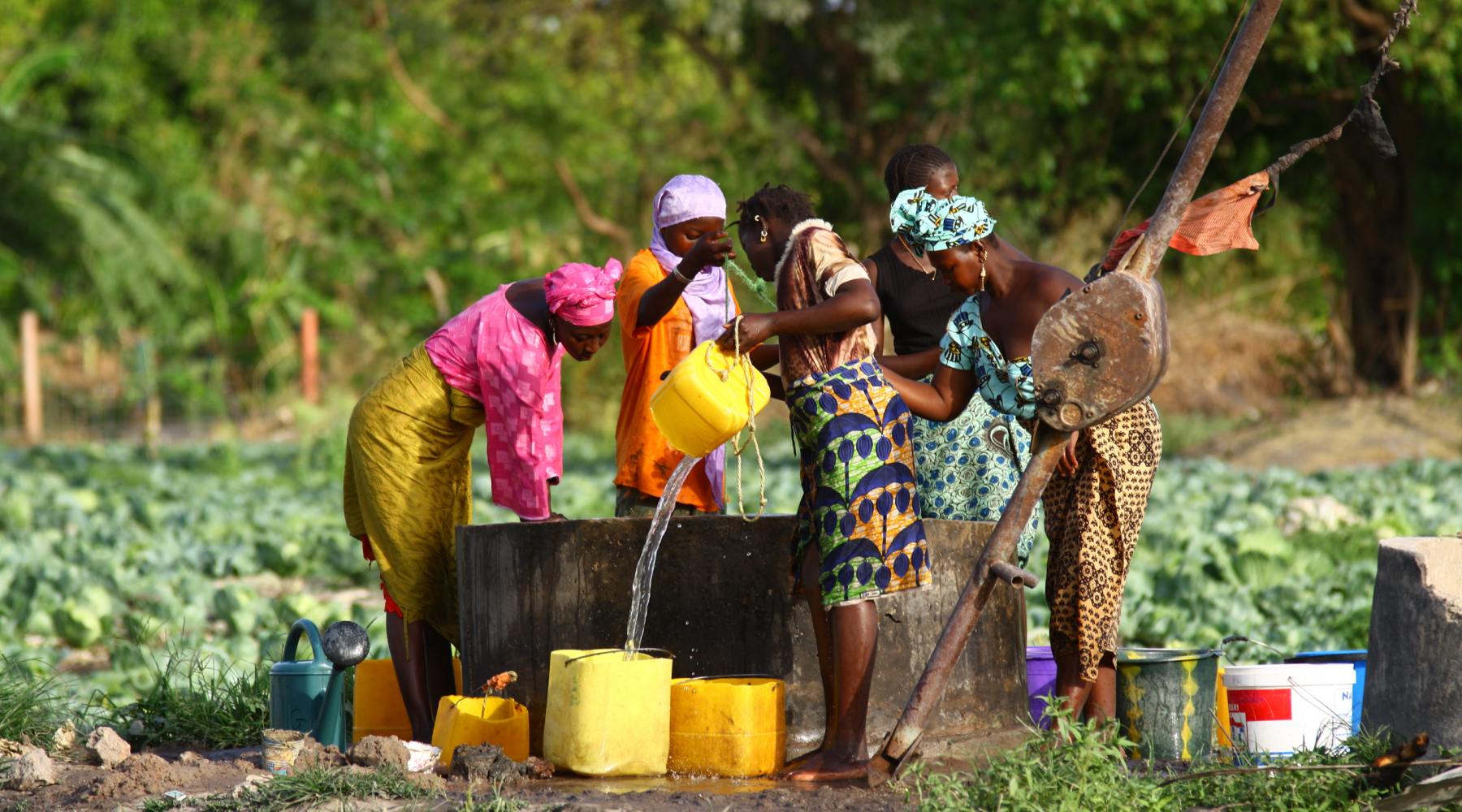
Are you interested in an internship in Jahaly Health Centre or Kindergarten – or are you looking for a place for a voluntary social year (German FSJ)?
We do offer internships in Jahaly Health Centre and in Jahaly/Madina Kindergarten.
Important note for all interns, volunteers and visitors: on the project site in Jahaly there is an absolute ban on the consuming of alcoholic beverages.
The partner organisation of the German “Projekthilfe Gambia e.V.” in The Gambia is called “Project Aid The Gambia” (International NGO A57). Our Main Office is located in Manjai Kunda, which is a small town in the coastal region, not far away from Banjul, the capital city of The Gambia, and next to Serekunda, the second largest town of the country. The coastal region is called “Kombo”. Project Aid The Gambia is registered in The Gambia as “International NGO A57″.
Kombo has a fairly well settled infrastructure for tourism and is supposed to be the best developed area of the country. The Gambia is divided into several “regions”. The village Jahaly and Jahaly Health Centre is located in the “Central River Region” on the south bank of the river Gambia. All our projects are financed through donations from Germany. On the ground in Jahaly there work Gambian staff only. Learn more on our Gambian staff here.
For an internship please contact us here. We will come back to you soon
We recommend a complete COVID-19 vaccination before the start of the internship / volunteer work
February/March 2023 tba (Health Centre)
February/March 2023 tba (Health Centre)
08.11.2022 – 02.04.2023 tba (Kindergarten)
20.09.2022 – 30.01.2023 tba (Kindergarten)
Feel free to submit your application. We can accommodate up to six interns in Jahaly at the same time.
Note – the Kindergarten is closed at the following times: summer holidays (two months from mid/end July), Easter holidays (two weeks), Koriteh/Eid-al-Fitr (7-10 days at the end of Ramadan in spring), Tobaski (one week in June/July) and Christmas holidays (two weeks).
How and how long can I work as an intern for Project Aid?
We look forward to work with interns in Jahaly Health Centre as well as in the Kindergarten. An internship should take not less than four weeks. Internships are available for a period of up to twelve months.
What pre-conditions do I have to meet as an intern?
You have to be of full/legal age. You should have a good knowledge of the English language, although children, patients and staff often use their local languages. You have to identify yourself with our mission statement. Please be ready to live in and to learn from a different culture. We expect you to integrate yourself into our projects. Our staff is on time, it is polite, it works as professionals. The same you should do. During and after your internship you have to write reports on your time in Jahaly. Your stay with us is NOT a holiday deluxe. Please be ready to accept very simple living conditions.
What does Project Aid offer me?
Working in one of the best Kindergartens and/or in one of the best Health Centres of the entire country. Contact persons in Germany and in The Gambia. Shuttle service in The Gambia from and to the airport free of charge. Accommodation free of charge in Manjai Kunda, board and lodge free of charge at Jahaly Health Centre. We support you in dealing with all legal formalities of your stay in The Gambia. But we don´t pay for your own travel and personal expenses.
What pre-conditions do I have to meet as an intern at the Kindergarten?
No pre-education is required. But you should go well with children. You should be ready to learn from our teachers. A kindergarten in The Gambia is quite different from a kindergarten you may know. In Jahaly/Madina Kindergarten the little students already learn English, writing, reading, calculating.
What is my work about at the Kindergarten?
You will be assigned to one of the classes. You will teach together with the two teachers. Please watch and learn first. Later the teachers or the Headmaster team welcome any new ideas you may want to implement. In the Kindergarten 380+ children (as of January 2020) between the ages of four to seven years are being taught and prepared for attending the Primary School. We teach amongst others „Numbers“, „Spelling“, „Environmental Studies“, „Religion“ und „Gardening“. The children especially love „Entertainment“, where they learn poems and songs and how to dance following the sound of african drums. Are you a musician? Then just start being creative with our music teacher. By the way: you don’t need to wear a school uniform like the teachers.
What pre-conditions do I have to meet as an intern at Jahaly Health Centre?
Medical knowledge is important for the work at the clinic. Nurses and midwives – in education – or physicians are welcome. The clinic is operated by specially educated nurses. There are no doctors working at the clinic.
What is my work about at Jahaly Health Centre?
You can learn about the various areas of the clinic. We recommend that you start with a one-day visit of each area: patients’ welcome desk , consultancy/treatment, laboratory. The stand-by night shift can be an interesting experience. Afterwards please discuss with the Head of the Clinic which might be the best area for you to work in. At the maternity ward of Jahaly Health Centre several children are given birth every week. However, there are not so many births, that it would be worth “only” as a midwife to come to Jahaly. In this case, we recommend working in the clinic with readiness for births. The maternity ward does only normal births, no surgical procedures such as caesarean sections. If there is a need for this, the patient is transferred to the nearest hospital in the town of Bansang. An ambulance car is available and patient monitoring is possible.
What are the costs for my internship?
The internship itself is free of charge. There is only one condition: you have to sign a sponsorship for the Kindergarten in advance. It is 15 Euro a month only. Please sign in here. „Projekthilfe Gambia e.V.“ welcomes interns like you. Please remember, that you will come for learning, you will not come for working. As a charity which is financed by donations only we can not pay for your ticket to The Gambia. Accomodation at the compounds of our Main Office and Jahaly Health Centre is free of charge. In Jahaly you don’t need a lot of money. 70 – 100 Euro per month should be enough. It depends whether you use the drinking water from the system of the clinic or whether you prefer buying bottled water in the next village, called Brikama Ba. It depends whether you want to join the staff with their african meals, which are free of charge for you, or whether you prefer preparing the meals by yourself . For example: for a piece of bread the Jahaly bakery charges 6 Dalasi (12 Euro Cent). In Kombo it is more expensive. But there you can buy Nutella 😉
How do I get to The Gambia?
From Europe we prefer flying Brussels Airlines from Brussels/Belgium. We advise you to NOT take the road from Dakar/Senegal.
FTI and Corendon Europe offer nonstop flights from the German airports Dusseldorf, Frankfurt, Munich and Leipzig/Halle.
Vueling is connecting The Gambia via Barcelona/Spain. TAP recently announced to offer nonstop flights from Lisbon to Banjul from September 2019.
Air Maroc is connecting The Gambia via Casablanca/Morocco. Arrivals/departures at Banjul Airport are in the early morning.
During the tourist season (November til March) there are charter flights from Brussels, Amsterdam and Great Britain.
A security levy of 1,000 Gambian Dalasi or USD 20 is levied on arrival and departure from Banjul International Airport and must be paid in cash.
How do I get to the Main Office after my arrival at the airport?
At the airport you will meet a member of our team just at the exit of the baggage claim showing your name on a piece of paper. He/she will shuttle you to the compound of our Main Office in Manjai Kunda. An own address like in Europe is not available. If you would like your family to send something to you, please use this address: Project Aid The Gambia, NGO A57, P.O. Box 4540 Bakau, The Gambia, West Africa. If you ever get lost – these instructions help the taxi driver to find the address: take the coastal road („Bertil Harding Highway“) to the junction at Kotu Police Station. Turn into Kotu Road in an eastward direction, pass Kotu Fire Station. After 750 m enter the unpaved street on your left. There is a big tree, a taxi stand and a sign board „Project Aid The Gambia“. Drive this small dust road for 150 m until you reach the dark red gate on the right. Open this link to Google Maps to see this route.
What is the compound of the Main Office about – who is living and working there?
The compound is like a tropical garden. After entering the gate there is a little staff house of our gardeneer Theodore on the right. At the left side of that house there is the high water tank and the little house with the emergency power generator. Drinking water for the compound comes out of a deep well. It is of very high quality. You can drink it without any problem. Going further there are the guest house and a garage. At the end of the compound there is the house of the German chairman, Matthias Ketteler. After entering the main gate, at your left hand side there is the transfer store for drugs and the Main Office. This is the office of the Project Coordinator and his small team. The opening hours are Monday thru Thursday from 8.30am to 4.30pm and Friday 8am to 1pm. The back part of the office is the apartment of Patricia Ceesay. She runs a small private School near Brufut. Next to the office there is the house of Babucarr (“Pap“), the project´s mason, and his family. Opposite of his house there is a small masoned cooking hut with an oven. Next there are a store for gardening tools, vegetable beds, several greenhouses and our Moringa trees. Leaving this area though a small gate there is a bar, a pool and an open hut (“Bantaba”), which we use for meetings. We have a day and a night watchman. During the office opening hours Theodore, the gardener, is also present.
Register to our Intern´s group on Facebook and watch a guided video tour (German only) of the compound.
Where do I stay before my departure to Jahaly?
In the Manjai Kunda guest house on the compound of the Main Office. The house is equipped with a kitchen with fridge and oven, a bathroom with a boiler for hot water, four double-bed bedrooms with huge mosquito nets and a living room. One of the bedrooms has an additional bed. It may occur during your stay, that the guest house is packed full with interns/volunteers leaving and arriving at the same time. You might have to change bed and/or room. We ask all interns/volunteers to solve that issue among themselves.
In the street at the rear side of the compound there is a small shop, where you can buy bread. In the guest house WiFi is available. Please notice that the speed of internet access very often is very poor in The Gambia. This is also driving us crazy every time.
You will also stay in the Manjai Kunda guest house before your departure to your home country. Please take notice: the guest house is located in the project’s compound, which is a private property of the German founder and chairperson of the project. We look at you as our guest. We expect that you behave like a guest. Some staffs of Project Aid The Gambia are living in the compound. So please respect their privacy and keep quiet at night absolutely. For partying there are a lot of places available outside of the compound.
How do I get to Jahaly from Manjai Kunda?
The Project Coordinator travels to Jahaly once a month. He gives you a lift in the project car. The trip to Jahaly takes three to four hours. Normally the Project Teams´s trip is scheduled for the end of each month. Our advice is to schedule your arrival in The Gambia for within the last ten days of a month. If this is not possible there is a public transport service available, which you can use as well as a “Bushcab”, which they call “Geligeli” here.
How does a ride with a Gelgele looks like?
A „Gelgele“ or „Bushcab“ is a minibus for 15 to 20 passengers. They leave from Westfield and Bundung Garage. We advise to take one of the early morning Gelgele around 7am. Take a yellow cab to the station. Keep an eye on your luggage. Look for a Gelgele with the destination Brikama Ba. This is the next village after Jahaly in the direction of Bansang. Try to stay calm in the chaos of the station. Choose your Gelgele. Your luggage is transported at the roof of the minibus. The fare to Jahaly is about 200 Dalasi (= ca. 4,00 €), which you pay after departure. For heavy luggage there may be an additional fee from 100 to 300 Dalasi. The main advantage of a Gelgele: you have a seat. Going with the public bus service you can´t book a seat in advance. The trip to Jahaly takes four hours. On the route there are several police and military checkpoints. At some checkpoints you have to present your passport. The driver of the Gelgele will make a short rest in Soma. From Soma it is two more hours to go to Jahaly.
Where can I change money?
Please ask the Project Team at the office. You can not purchase Gambian Dalasi in your home country.
What sort of equipment should I bring from home or from Kombo to Jahaly?
Sun glasses, sun hat, toilet paper, soap, shower gel, food (as sausage, cheese, jam, cookies, milk powder, tinned food, Nescafé), washing powder, tissues, torch, spare batteries and mosquito repellent. There are a lot of well equipped grocery stores in Kombo. Please ask the Project Manager or the driver where to go for shopping.
How do I protect myself against mosquito bites?
Malaria prophylaxis with tablets is only possible for six weeks per year without any problems. We advise you necessarily to talk to your doctor about it in your home country. Our advice: the best protection against malaria is not to be bitten !!! Therefore, use mosquito repellent in dawn and dusk – always and without exception !!!! And always and without exception sleep under a mosquito net! During dusk and at night always wear long pants and a long sleeved shirt. Use mosquito protection on long trips also: mosquitoes also live in the dark foot space of cars and buses. As repellent we recommend from our experience the classic “Autan” and no specials such as “Autan Tropical”. Please bring these from home!!
ATTENTION!!! A malaria disease starts with symptoms like an influenza. The disease can be diagnosed by a simple blood test. The rule is: the sooner treatment is started, the less complicated is the treatment! Therefore, you always have to exclude malaria first, when vomiting, fever, body aches etc.. Do a malaria test: this is possible any time at Jahaly Health Centre. Even if the results are negative it may make sense to do another test if the symptoms do not subside.
Again ATTENTION !!! After returning from Gambia a malaria can also occur (incubation time = 10-14 days). Therefore, always point out to the doctor in your home country that you have been in an malaria area in the last few months.
How do I cater for myself in Jahaly?
There is rice with different sauces and vegetables for lunch and dinner. You may join the staff for lunch and dinner. If you do so it is free of charge for you. All of you eat from the same large bowl. Take your own spoon from the Jahaly guest house. Breakfast everybody has on its own. There is a hut with a bakery opposite of the entrance of the clinic where you can buy fresh bred in the morning. Ask somebody to show you the exact place of the bakery hut.
How do I stay in contact with my family and friends at home?
The guest house in Manjai Kunda is equipped with free WiFi. Buy a local SIM card for about one Euro. All over the country you can buy additional credit for the SIM card. Ask the Project Coordinator which provider offers good data service for mobile internet. Prizes for data plans (30 days) are as follows (as of March 2018): 200 MB 90 Dalasi (ca. 2,00 €), 500MB 195 Dalasi (ca. 4,00 €), 1GB 275 Dalasi (ca. 5,50 €) und 2GB 495 Dalasi (ca. 10 €). You might buy more credit for data any time without any problem. The quality and speed of the mobile internet connection at Jahaly Health Centre depends on the time of the day and on where you are exactly in the compound. Our current volunteer (March 2018) reports the best connectivity is in the evening in one of the four bedrooms of the guest house.
What should I bring in any case to Jahaly?
Temperatures are pretty high in Jahaly, five to ten degrees more than in the coastal region. You shoud bring your own duzet cover as blanket for the nigth. A bed sheet and a pillowcase are available in the guest house. Blankets are NOT available. Please also bring your own towels. Don´t forget to bring a laptop computer with videos and music as you have a lot of free time after work. Some novels you find in the cupboard of the guesthouse`s living room.
What can I buy in Jahaly?
Next to the bakery hut there is a little shop where you can buy phone credit, bread and a some other minor things. Attention: be prepared to have enough small Dalasi notes. Change is normally not available at the shop. In the next east-bound village, Brikama Ba, you can buy fresh vegetables, fruit, bottled water, soft drinks, milk, torches and more. Brikama Ba also has a bank office for changing money from 50 Euro.
ATTENTION and WARNING!!! The consumption of alcohol is NOT allowed under NO circumstances on the premises of Jahaly Health Centre and Kindergarten. Without any exception! Not even at night in the Jahaly guest house. Whoever does not follow this rule, will be terminated and has to leave the project compound immediately.
Where do I stay during my internship in Jahaly?
There is a guest house at the compound of Jahaly Health Centre. It has four bedrooms, two showers, one restroom, a living room and a kitchen equipped with all basics you need including a small cooker and a fridge. Each bedroom is equipped with a double bed, huge mosquito net and a wooden shelf to store your stuff. There is 24/7 running water and electricity. Fresh water comes into the system from a deep well. You may drink it and should not have any problem. There are German socket outlets in the building. Please bring your own adapter when needed. A desktop PC with USB Internet stick is available in the guest house. But the internet connection is extremely poor most of the day. At the compound of clinic and kindergarten you may wear shorts and a top, although this is not compatible with the Gambian culture. Leaving the compound you should wear long trousers or a dress, and a no-strapless shirt. Please respect the rural Gambian way of living. Be sure: you will loose respect due to improper outfit, although Gambians don’t frankly show disrespect. It is forbidden to sunbath with bikini, bikini top or swimming trunks. We do stress this here because it already had happened. It sometimes happens that – announced or spontaneous – other guests of the project have to be accommodated in the guest house. Then you may need to swap the room and / or share “your” room with a second person. You do not have a claim to a single room.
How can I do my laundry in Jahaly?
There is no washing machine in Jahaly. Please use the buckets which are available in the guest house. You find a clothes line and clothes-pins. Watch the women of Jahaly how they do their laundry. Please bring your own laundry detergent.
What trips do you recommend for my free time?
Jahaly: Visit the town of Janjanbureh (ca. 30 km eastward) at the bank of river Gambia with it´s historic slavery buildings. Many tourists from the coastal region also make a stop-over here. Do a boats trip on the river for 1,000 – 1,500 Dalasi (ca. 20-30 €). You will meet monkeys, a lot of colorful birds, crocodiles and may be hippos. Cross the river by ferry or boat to the North Bank. There we recommend „Janjanbureh Camp“ for an overnight stay. You can book a hut or you may ask them for preparing matresses at the top of one of their river boats. Mosquito nets are available. Accomodation is a very basic one, but you will never forget this night in the jungle! Ask for dinner and breakfast. And order a cold drink while watching the amazing sunset. – Ask our staff in Jahaly how to get to Janjanbureh. If you like one of our staff to join your trip you normally have to pay his/her expenses. Please discuss this issue before departure!
Manjai: If you have a lot of free time it is worth travelling back to Manjai Kunda. Visit one of the beaches, a restaurant or the crocodile park in Bakau. Take a yellow cab to all of theses places. The fare for a ride to the beach is about 50-100 Dalasi (1-2€).
Tips:
Restaurant/Bar: “3 Chicks & A Grill” – located at the roundabaout in front of Senegambia Beach Hotel
Restaurant: „Come Inn“, operated by a German guy. Leave Manjai Kunda, at Kotu Police Station turn left on Coastal Road (“Bertil Harding Highway”) , turn left again at next main crossing vinto Kololi Road. The restaurant is about 100 meter on the left.
What preparations do I need to do in my home country?
In advance please contact the Board of Projekthilfe Gambia e.V. Please use the contact form here. A member of the board comes back to you for discussing the details. Before later travelling to The Gambia we need these documents:
your curriculum vitae (CV)
Passport photograph
subscription to a Kindergarten sponsorship
all flight details
contact details of your family at home
completed questionnaire – please register here and fill in. You can return to the questionnaire at a later time to complete or change data
proof of taking out travel health insurance with repatriation insurance
return of the signed “Internship/volunteer agreement” that we will send you
Please check out whether you do need a visa for travelling to The Gambia. Residents of the most western countries get a tourist visa for 21-28 days at Banjul Airport. Extending the visa is no problem. The Project Office takes care of that. Please discuss this issue with the Project Coordinator and leave your passport with him. It will be safely stored in our massive safe. Bring a copy of your passport for your trips within The Gambia. You should contract a travel insurance covering medical expenses and repatriation. Please discuss any necessary vaccinations with your doctor. Necessarily a vaccination against typhoid (Salmonella) makes sense. You may suffer from a diarrhea about seven days after arrival. This is normal due to the different food and no cause for concern.
How do I get to the airport when I fly back to Germany?
We will take you to the airport. Please make sure you arrive at the airport on time – at least two hours before check-in closes. Check with the airline beforehand to find out when check-in closes. Even if the airline offers online check-in, it does not work at Banjul airport. Please discuss with our office at what time you should be picked up. If the driver is late or unavailable: don’t wait, take a taxi! Before you miss your flight. Especially in the evening, there is a lot of traffic and congestion on the way to the airport. Take this into account when calculating your journey time.
Where do I find more information?
Website: www.buschklinik.de
Facebook: Projekthilfe Gambia e.V. | Facebook
Facebook group: Facebook group for volunteers/interns
Instagram: Projekthilfe Gambia e.V.
YouTube: https://www.youtube.com/c/ProjekthilfeGambiaeV
LinkedIn: https://www.linkedin.com/company/projekthilfe-gambia-e-v
Last but not least: please follow us on Facebook and share our page with your familiy and friends here.
Last updated: March 2021
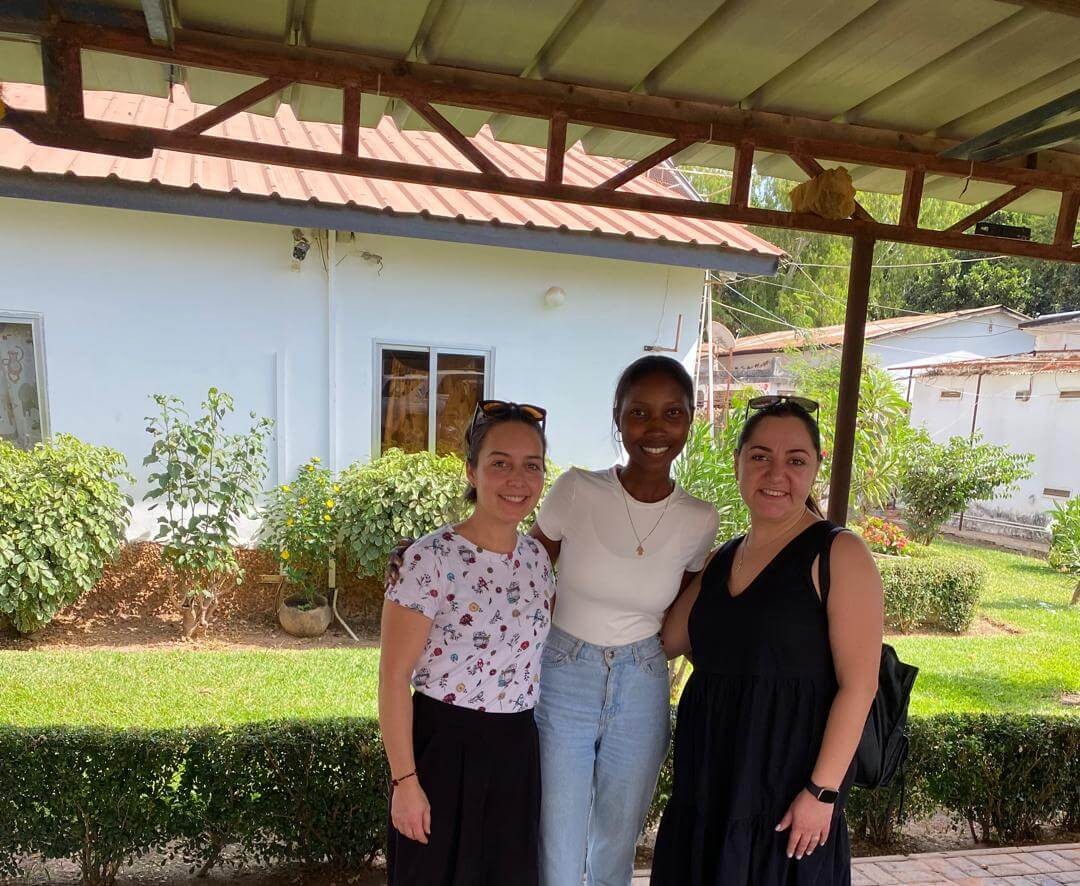
12.12.2022
On 09.12.2022, a team from Friedensdorf (Peace Village) International in Oberhausen, Germany, accompanied eight Gambian children who had received medical treatment in Germany back to The Gambia. The …
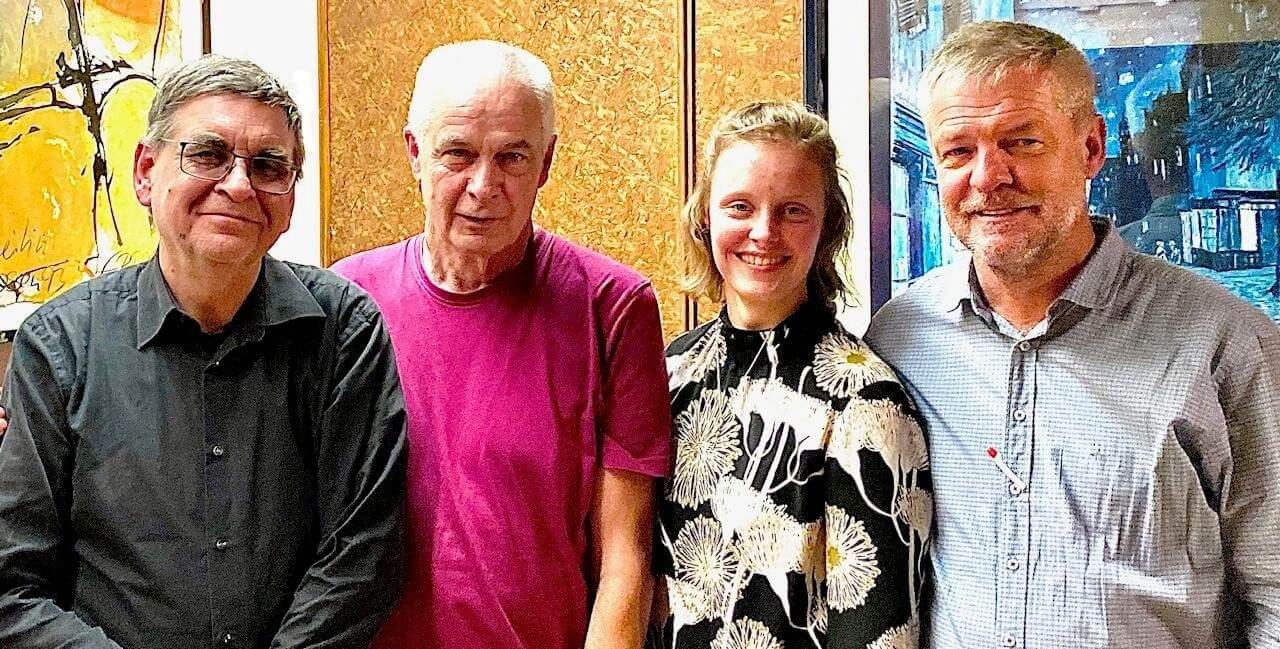
12.03.2023
At the 2022 general meeting of Projekthilfe Gambia (Project Aid The Gambia, Germany) on 25 November 2022 in Essen, Germany, board member Jürgen Heuer announced his resignation for reasons of age. …
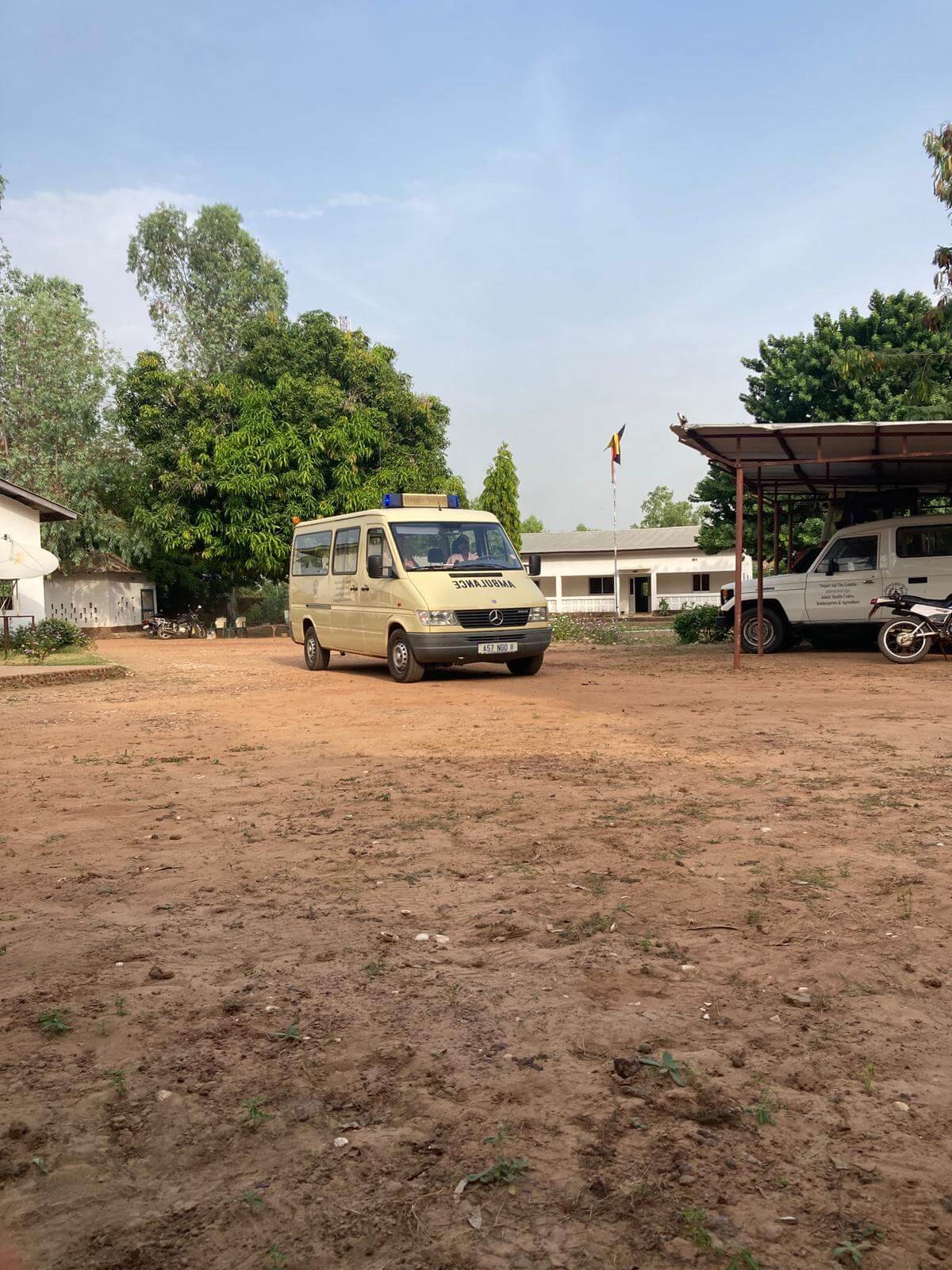
12.03.2023
The participants of the 2022 fundraising tour from northern Germany to The Gambia have all returned safely to Germany – and are now processing the many experiences on the adventurous 7,000-kilometre …
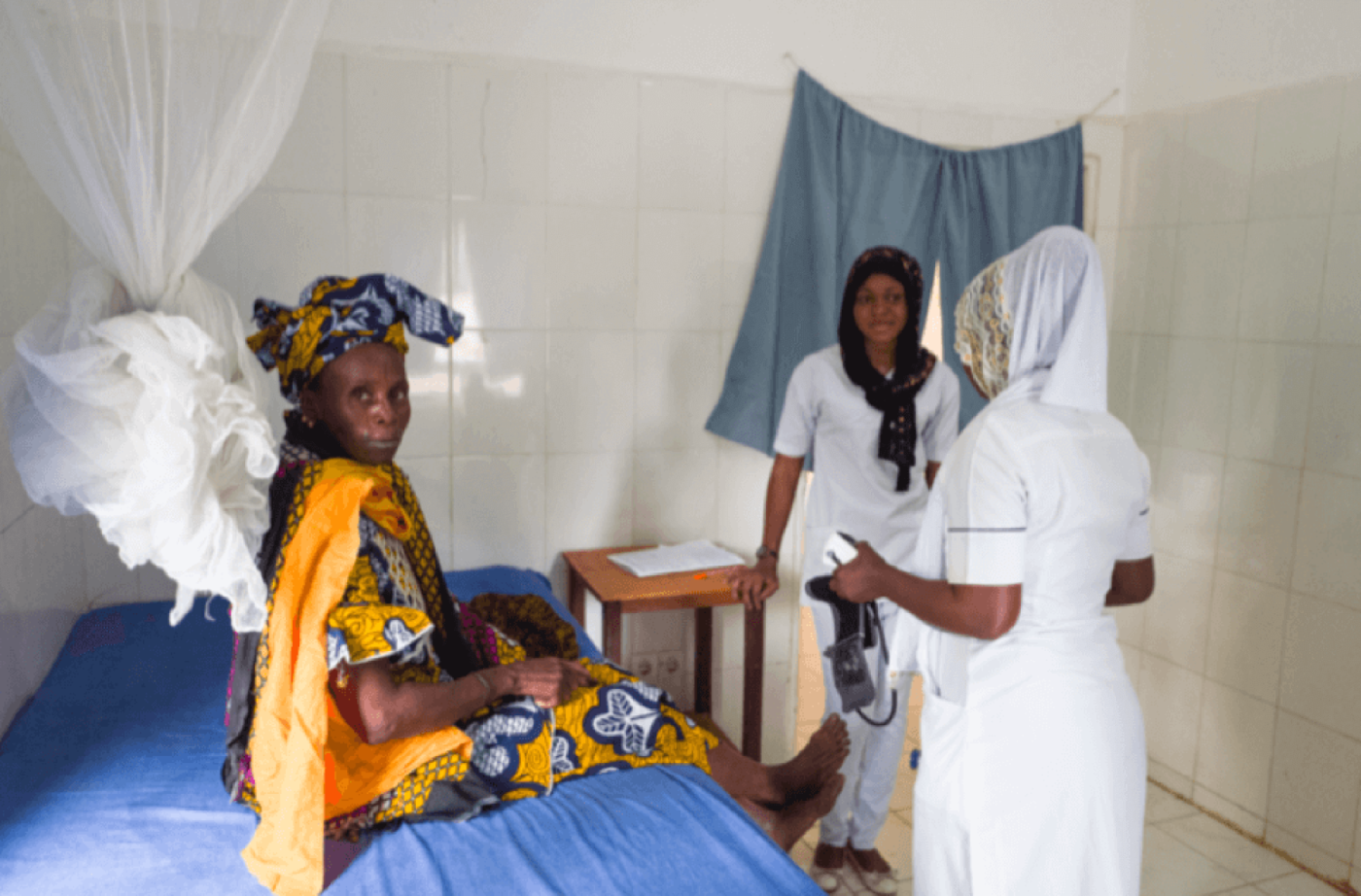
The “Jahaly Health Centre” serves up to 46,000 patients per year – outpatients as well as inpatients – and is considered one of the country’s best health facilities. In 2009 it has been recognized by the Gambian government as a “model clinic”. The clinic has several surgeries, two wards, a laboratory, a pharmacy, an ambulance car and a maternity …
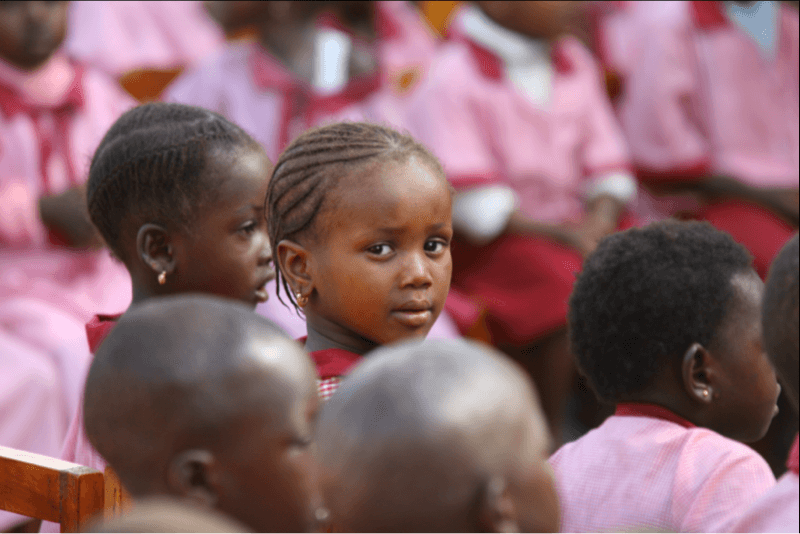
In 2004 Project Aid The Gambia opened the Jahaly/Madina kindergarten with pre-school for 240 children right next to the “Jahaly Health Centre”. The cost for construction and operation of the first three years were financed through a charity fundraising program of RTL German Television. The request to attend kindergarten and pre-school has …
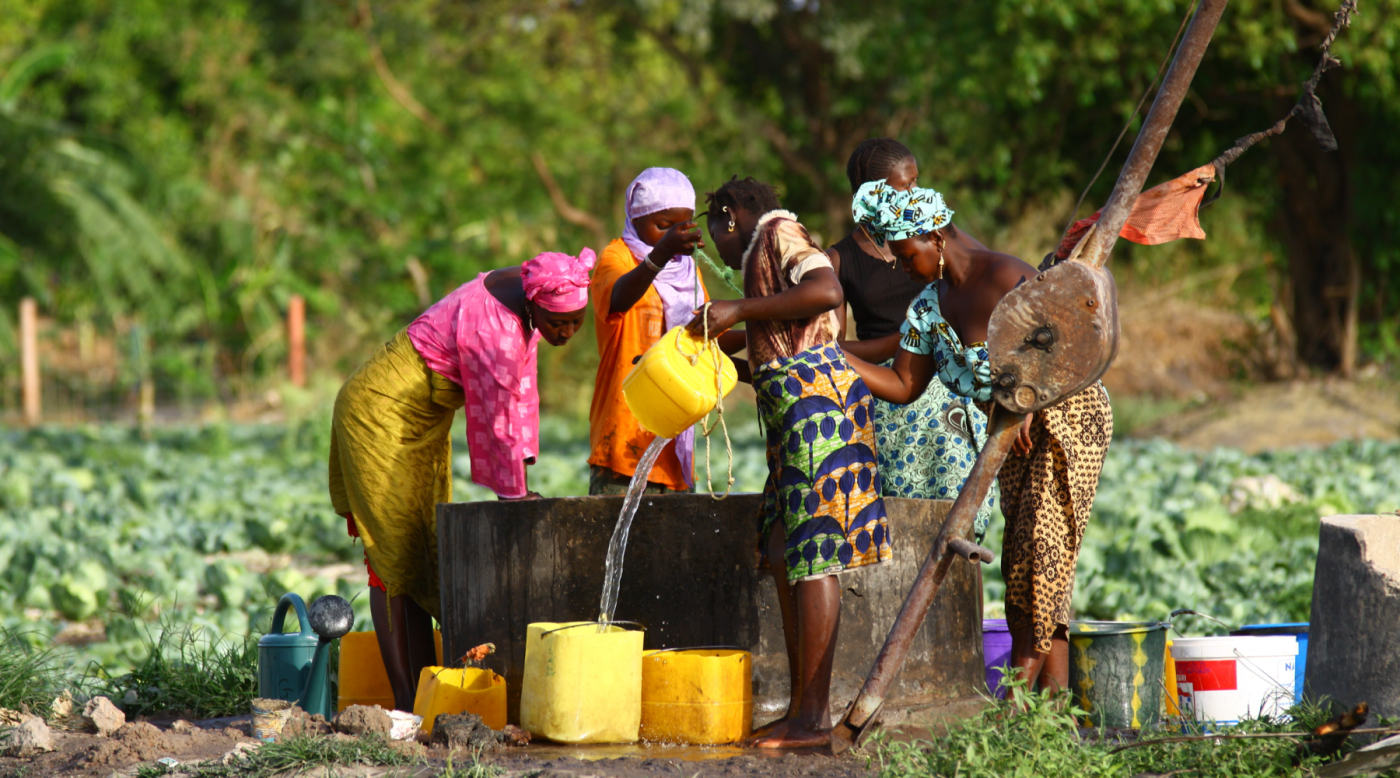
About 1,000 women of Jahaly and neighbouring Madina work on four gardens with a total size of more than 100,000 m². The gardens were an initiative of the villagers. It was in the year 2002 that the women’s committees of the two villages requested support of the Project Aid. They had joined together with about 220 women and wanted to have a …
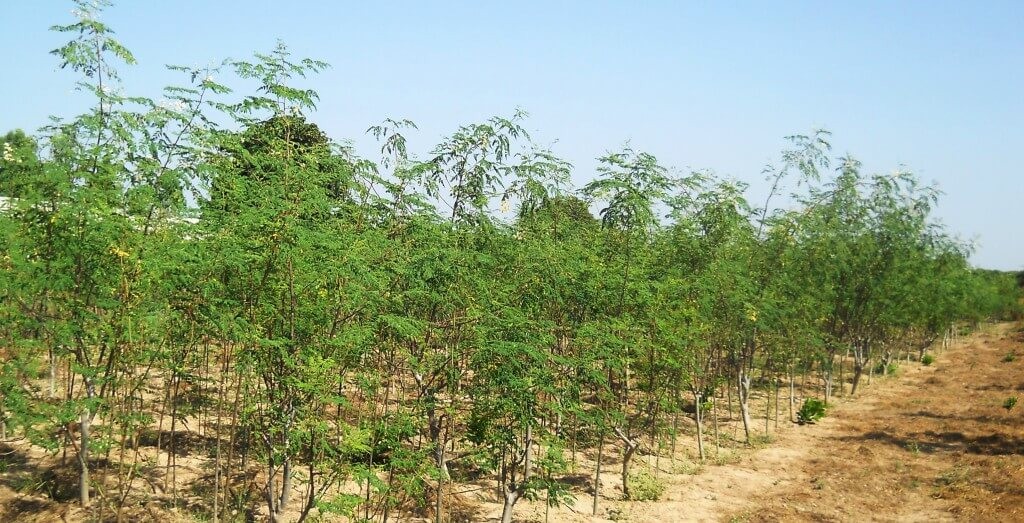
Since 2012 around 10,000 Moringa Oleifera trees have been planted on the area behind Jahaly Health Centre and Kindergarten. You may see the plantation here on Google Maps. In 2018 and 2020, two bush fires in the neighbourhood spread to the plantation and destroyed most of the trees. Currently (May 2021), the plantation is being replanted. After …
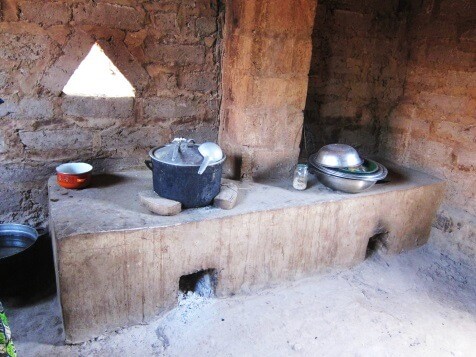
In 2010 Project Aid started to develop eco-friendly ovens, which are meant to replace the traditional open fires people use to cook in the villages. The ovens save a lot of fire wood and make cooking more comfortable as the smoke does not longer cause diseases of eyes or irritations of the respiration path. They also decrease the risk of burn …
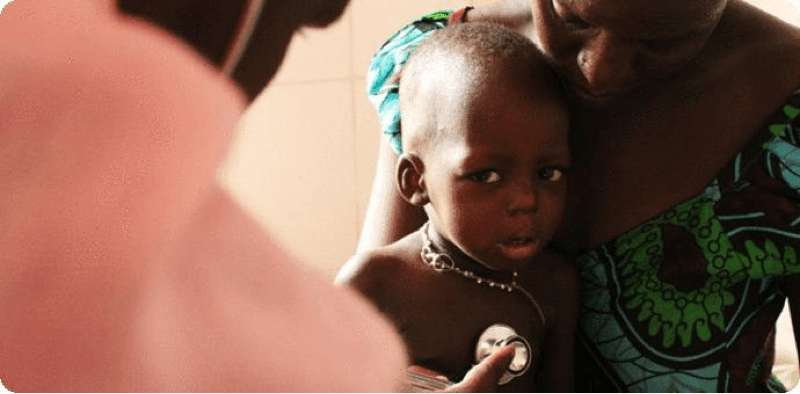
In June 2012 Project Aid The Gambia started a cooperation with the German charity “Friedensdorf (Peace Village) International”. Sick and injured children are brought from The Gambia to Germany for often life-saving surgeries. The little patients undergo a strict selection process in The Gambia. Children from areas of war or crises can only be …